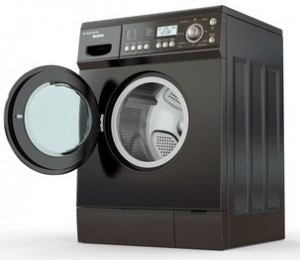 The money pit – that’s how lots of homebuyers describe their new purchase. First, there’s the down payment, then the closing costs. Then, there are all the things to purchase to make the home comfortable for you and your family.
The money pit – that’s how lots of homebuyers describe their new purchase. First, there’s the down payment, then the closing costs. Then, there are all the things to purchase to make the home comfortable for you and your family.
Sometimes the house just needs a new coat of paint, or new flooring. Many new homeowners, though, are faced with the purchase of costly new appliances.
On top of all the money you’ve just shelled out to buy the house, these expenses can add up. In fact, the average homebuyer spends $7,400 on their new home in the two years following the purchase, according to the National Association of Home Builders. About $5,000 of that is spent the first year.
Home Appliances and Sellers
To avoid having to purchase new appliances, provided the ones in the home are in working order, request that they be included in the sale. If the sellers agree, ensure that your agent lists these items in the purchase agreement, typically under “personal property included in the sale.” Name the brand and model number in the contract. Be aware that many savvy listing agents will counter this request to include a “no-warranty” clause in the contract to protect the seller in the event an appliance breaks down shortly after the sale.
When checking the home’s appliances, consider the following:
- Any appliance repair problems the seller experienced
- The age, make and model of any used appliance
- The approximate life of the home appliance
- The functionality of the appliance
- The safety of the appliance wiring
- Whether the appliance uses gas or electricity.
Some of this information may be readily available, while other details (such as the safety of appliance wiring) may need to be answered by a home inspector.
Considerations When Shopping for Appliances
If the seller isn’t including the appliances in the sale, or should you decide you’d rather purchase your own, there are several things to think about.
The Federal government occasionally offers tax credits to homeowners who purchase energy-efficient appliances. These credits come and go, so check with your accountant about the current tax code. If you qualify for a tax credit, it might be a good idea to pay a bit extra to purchase energy-efficient appliances. Not only does the credit help offset what you originally pay for the appliance, but the efficient use of energy will save you money on your utility bills as well.
Determine Which Appliances to Purchase
If you’re strapped for cash, prioritize your appliance-shopping list. Spend more to buy a quality washer rather than a dryer since washers break down far more often than dryers, according to the experts at Consumer Reports. These same experts suggest that the least expensive refrigerators are those with the freezer at the top. Simpler appliances, those with fewer parts, tend to last longer than those with complex systems.
After the cash crunch caused by the home purchase, many new homeowners just don’t have the funds for new appliances and decide to purchase used appliances. The biggest disadvantage of buying used items is the lack of a warranty. When buying anything from a stranger you take a chance that you aren’t getting what you’re paying for. Before laying out the cash, have a professional go over the appliance. It may cost you a little extra, but the peace of mind is well worth it.
